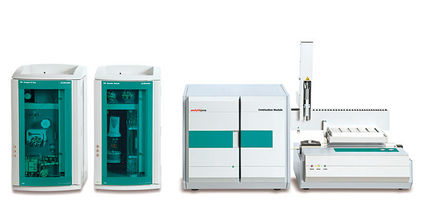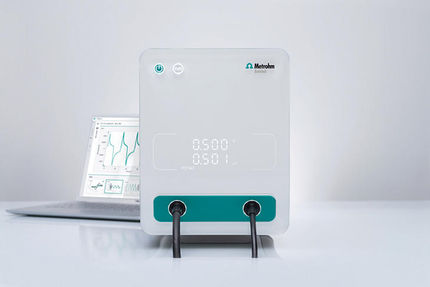To use all functions of this page, please activate cookies in your browser.
my.chemeurope.com
With an accout for my.chemeurope.com you can always see everything at a glance – and you can configure your own website and individual newsletter.
- My watch list
- My saved searches
- My saved topics
- My newsletter
Baron Sigmund Zois von EdelsteinSigmund Zois also known in Slovenian as Žiga Zois (23 November 1747 in Trieste - 10 November 1819 in Ljubljana) was a Carniolan nobleman, natural scientist and mecenate. Product highlightSigmund's father Michelangelo Zois was a Venitian merchant who moved to Ljubljana where he made a considerable fortune. He married a Carniolan noblewoman and acquired the right to the title of baron. He owned large estates both in Carniola and on the Karst, and Sigmund was born in Trieste, in one of his father's palaces. He studied natural sciences with Gabriel Gruber and Joseph Maffei in Ljubljana. After attending several other private schools, Sigmund Zois moved to Italy where he continued his education. He enjoyed traveling and making new aquaintances. However, his way of life was soon truncated by gout, a disease that would stuck him for the rest of his life. After returning to Ljubljana, he developed a strong interest in sciences and started to work with Baltazar Hacquet and several Slovenian intellectuals of the time. In the early 1780s, his mansion in Ljubljana became a fostering center for liberal intellectuals at the center of the Slovenian enlightenment. Jurij Japelj, Blaž Kumerdej, Jernej Kopitar, Anton Tomaž Linhart, and Valentin Vodnik were the most prominent members of what became known as the “Zois circle”. Zois was their mecenate (patron), mentoring them and granting them necessary financial support for their cultural and scientific efforts, thus becoming the central figure of the Slovenian enlightenment. He was a deist and his views were rational and empirical. Nevertheless, he strongly opposed the French revolution and supported the moderate enlightened constitutionalism of Leopold II. The literary opus of Sigmund Zois, of modest quality and little influence, includes many literary forms and genres, ranging from arias for the opera to lyrics for folk music, although probably only a minor part of his work has been preserved. His translation of the poem Lenore by Gottfried August Burger was regarded as a complete failure, and Zois himself later came to the conclusion that the Slovenian language was "too mediocre and rough" to allow for such a literary achievement. He would be disproven only some decades later by France Prešeren who managed to compose a complex and exceptional translation of the same poem. Zois is also regarded as a father of Slovenian literary criticism, most of his literary reviews can be found in his correspondence with Valentin Vodnik. Much more important are his achievements in the fields of mineralogy, geology, botany and zoology. His collection of minerals (around 5,000 items) is kept in the Slovenian National Museum in Ljubljana. In 1795, he mounted two expeditions to explore the land around the Triglav mountain. In 1805, the mineral zoisite was named after him, since Zois was the first to correctly assess that the rock found by Simon Prešern in the Carinthian Alps represented a previously unknown mineral. Sigmund also supported the work of his brother, the botanist Karl Zois who, among other things, discovered the Campanula zoysii, a previously unknown Carniolan flower. The most important scientific award in Slovenia, as well as a state-founded scholarship for talented students, are named after him. See also |
| This article is licensed under the GNU Free Documentation License. It uses material from the Wikipedia article "Baron_Sigmund_Zois_von_Edelstein". A list of authors is available in Wikipedia. |







